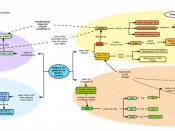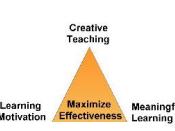When planning a program for the primary English learning area, it is important to begin with determining students' prior learning: what literacy behaviours are established, and what literacy behaviours need to be demonstrated. If knowledge of student's language needs and abilities are to influence our programming, how, then do we find out what those needs and abilities are? (Gibbons 1991, 282 Reader, 379). The instrument for gathering such knowledge is known as assessment, and in order to use assessment tools to produce accurate measurements, they must be thoughtfully designed at the outset and integrated into the program, rather than be seen as a separate process (EDWA 1998, 106).
This essay will describe the purpose of assessment, and explain the difference between the terms 'assessment' and 'evaluation' and how the two are connected. The main body of the essay will be concerned with outlining some processes and strategies teachers can use to create a balanced approach to assessment in the primary English classroom.
Assessment involves considering attitudes, processes, skills and products, and occurs through the observation and analysis of student's work (Gibbons 1991, 282 Reader, 379). Reasons for incorporating assessment as part of the learning program, include maintaining an accurate record of student's literacy development, and responsibly reporting on the literacy abilities of each student (Green and Campbell 2003, 179). A further purpose of assessing the development of students is to be able to describe what they are able to do. Teachers then use this information to evaluate students' individual strengths and needs, and from there, to determine the content and direction of the program (Green and Campbell 2003, 179).
Evaluation describes the process of interpreting the information collected through assessment, and should not be confused with the term 'assessment' itself. However, they are very much interconnected and as a result,



Hi
This is great stuff seriously. Must have tooken a long time to complete.
0 out of 1 people found this comment useful.